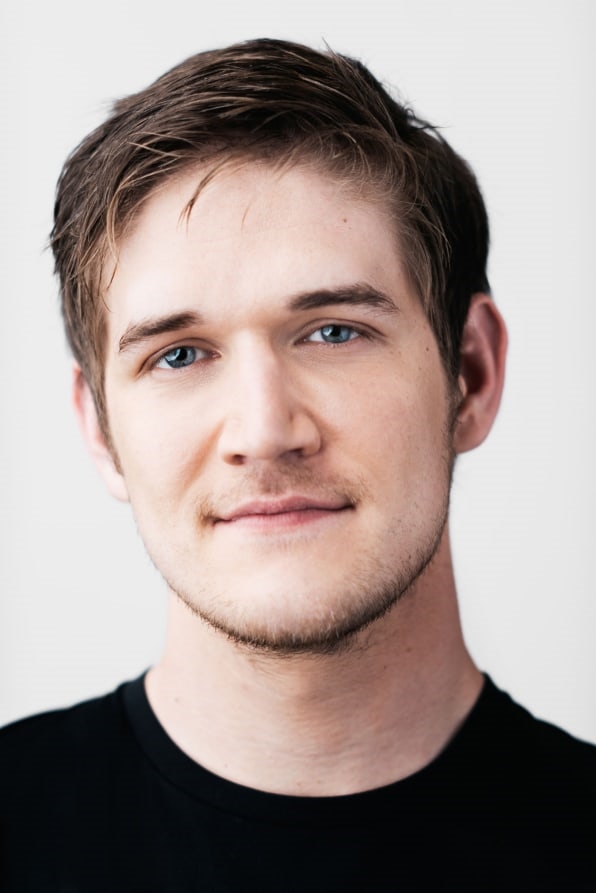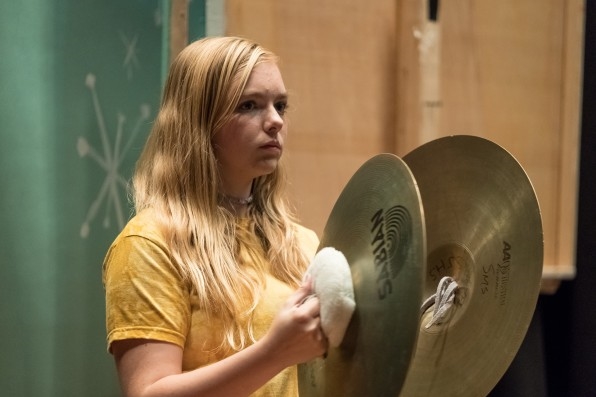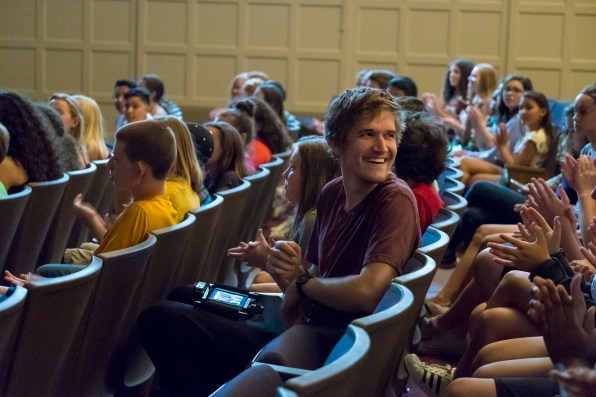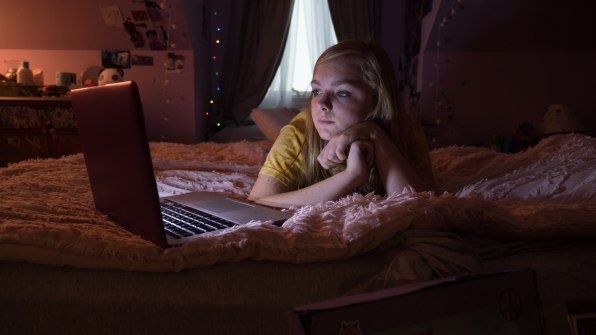Everybody is in their bathing suits. They look unconcerned about it too, as though they spend a lot of time seminude around other kids, the naked-in-a-hallway-nightmare come to wretched life. They all seem to know each other—not just the person who invited them to the pool party, perhaps reluctantly, at the urging of a parent. How are they already this chummy? They’re all locked into giggly conversations or pool noodle-fights or submarinal games of Marco Polo. And then there’s you: standing at the sliding glass door, eyes ablaze, prepping a plan of attack for the moment you will inevitably have to go out there, into the fray, in just your dumb bathing suit.

Going to a pool party as an unpopular, petrified adolescent is just as terrifying now as it’s ever been, for basically the same reasons. As much as some things never change, all too many of them do. There are endless, state-of-the-art reasons why being a 13-year old today can be a non-stop horror show. With his new film, Eighth Grade (in limited release today), first-time director Bo Burnham set out to capture both the timeless and the specifically 2018 reasons—the pool parties and the school shooter drills—and his personal experience alone was not going to cut it.
“My initial thing was I assumed nothing, I assumed that it resembled my childhood not at all,” says Burnham, 27, during a recent interview. “I was just trying to come at it from a place of, like, writing a WWII movie: This is a new experience with new kids in a new environment.”
Burnham’s own personal tour of duty in adolescence concluded at a time when a lot of the things that make being that age unimaginable for an adult today were just around the corner. He was an early adopter of YouTube at age 16, one of its first homegrown success stories. His videos were mostly silly songs, penned with an aggressively 16-year old sense of humor. He parlayed them into an international touring act, combining those songs with a theater nerd’s ambitious production sensibilities, and became the youngest comedian to ever get a solo special on Comedy Central, at 18. Further Netflix specials followed, and eventually film roles. (You may have seen him in The Big Sick.) About five years ago, it occurred to Burnham that directing films might be something he’d like to do.
Eighth Grade is the first result of that realization. (Burnham once developed a screenplay with Judd Apatow, but it never panned out.) The Sundance sensation follows Kayla (the absolutely incredible Elsie Fisher) as she shuffles her way through the final week of eighth grade. People are always telling Kayla she’s quiet—indeed, she wins a Most Quiet Girl superlative—but she wants to prove that’s not necessarily who she is. Some of her efforts involve going out into the world—braving one of those well-populated pool parties and also exploring her nascent sexual maturity. Mostly, though, she navigates the treacherous waters of social media and makes tortured advice videos on YouTube.
Unlike the videos Burham made as a teen, Kayla’s are seen by almost nobody.
Eighth Grade is teeming with heartbreaking glimpses of life as a tech-addled adolescent. In order to make the viewing experience as immersive and authentic as possible, Burnham crowdsourced plenty of lived-in details from actual 13-year olds. He watched hundreds of vlogs, where young boys and girls offer stammering advice on things they know nothing about (the opposite sex, how to just be yourself.) He got to know almost as many kids while casting and scouting and filming and promoting the movie, listening closely as they explained and contextualized their day-to-day lives. Through making a film set in school, he became a student of what teenagers today are like.
“The core emotions—loneliness, wanting to connect, wanting to be seen, wanting to be heard—they’re all the same, but the truth is, the internet and social media really just extend the spectrum of emotions. Everything is just felt bigger and deeper and longer than it was,” Burnham says. “I was actually encouraged by those kids, though. They seem to have a better grip on the internet than 30-year olds do. They seem to actually get the joke of the internet.”

Burnham himself, on the other hand, is way out of the loop. He feels more connected to the teachers in his film—teachers depicted as misusing gently outdated slang. (One awkwardly dabs; another too-pointedly describes something as “lit.”) In order to make sure that the slang and the references the kids in his film used didn’t sound like they were coming from one of those teachers, Burnham welcomed his actors’ input. That’s how he learned about the “Pickle Rick” episode of Rick and Morty, a show he personally has not yet seen. (“I’ve heard it’s really good,” Burnham says.)
He trusted his young star Elsie Fisher when she suggested that Kayla sign off her YouTube videos by saying, “Gucci!” And when he needed a realistic, current heckle during a school assembly scene, he put the question out to the extras on set. The response that made it into the film, ultimately in more than one scene, was “LeBron James,” a reference to a popular Vine.

We’re probably a year or two out from a generation of kids who don’t remember Vine. New technologies can catch on like wildfire and quickly fall out of favor. So too can people, especially with the help of social media. Every other day, it seems as though celebrities of varying renown say something that gets them “canceled” by suddenly former fans. It’s a phenomenon that could conceivably happen in the social microcosm of any random school too. Are today’s kids constantly worried that if they say the wrong thing, they might get canceled?
“I asked them and I don’t think they live with that fear,” Burnham says. “I think it’s more of a 20-year old, 30-year old thing. The stakes of politics hasn’t entered their lives yet. Kids are still being offensive and weird. The bigger fear for them is that something embarrassing happens.”

Sounds familiar. When I was a freshman in high school, in the mid-’90s, I was swinging on a rope across a Florida creek one day when the branch that was holding me up snapped and I fell on my ass. I was sure—in the fatalistic, self-absorbed way of 14-year olds—that my reputation was ruined, that the friends who were with me that day would spread word of my humiliation like a fleet of Paul Reveres. And that was before my friends and I all had phones in our pockets with cameras on them, let alone a way to ensure that every single person we went to school with could instantly see footage of the incident. That’s the reality every teenager is burdened with each day now, and Bo Burnham captures all the attendant terror and vivid beauty of it in Eighth Grade.
He’s thankful, however, that the technology that launched his career only became available when he was 16, and not a few years earlier, when he was Kayla’s age. Otherwise, his life would look very different today.
“It would have been a nightmare,” he says. “It was already kind of a nightmare and embarrassing for me, but if my 13-year-old self had been posting stuff, I wouldn’t be here today.”
Fast Company , Read Full Story
(45)